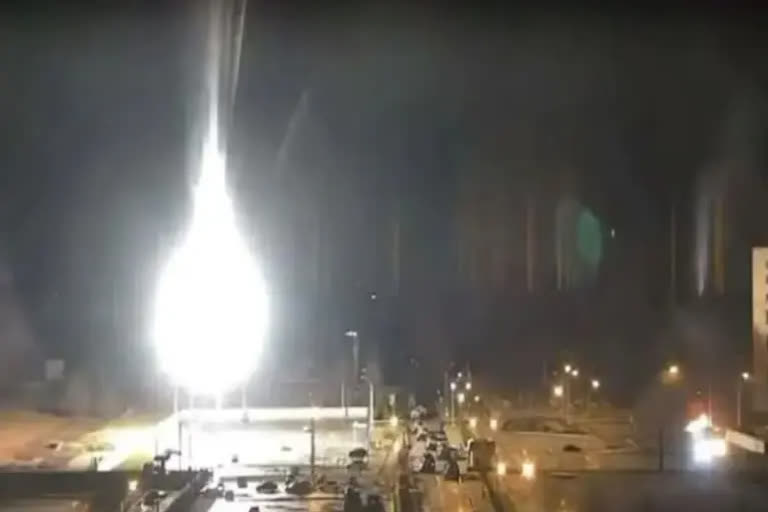Kyiv: Fears about the potential for a radiation leak at Europe's largest nuclear power plant persisted Saturday as both sides traded blame for nearby shelling. Ukraine said Russian forces fired on areas just across the river from the plant and Russia claimed Ukrainian shells hit a building where nuclear fuel is stored. Authorities were distributing iodine tablets to residents who live near the Zaporizhzhia Nuclear Power Plant in case of radiation exposure, which can cause health problems.
Much of the concern centers on the cooling systems for the plant's nuclear reactors. The systems require power to run, and the plant was temporarily knocked offline Thursday because of what officials said was fire damage to a transmission line. A cooling system failure could cause a nuclear meltdown. Russian forces occupied the nuclear plant complex early in the 6-month-old war, but local Ukrainian workers have kept it running. The Ukrainian and Russian governments have repeatedly accused the other of shelling the complex and nearby areas, raising fears of a possible catastrophe.
Periodic shelling has damaged the power station's infrastructure, Ukraine's nuclear power operator, Energoatom, said Saturday. "There are risks of hydrogen leakage and sputtering of radioactive substances, and the fire hazard is high," it said. The governor of Ukraine's Dnipropetrovsk region, Valentyn Reznichenko, said Saturday that Russian Grad missiles and artillery shells hit the cities of Nikopol and Marhanets, each located 10 kilometers (6 miles) across the Dnieper River from the plant.
But Russian Defense Ministry spokesman Igor Konashenkov said Ukrainian forces had fired on the plant from Marhanets. Over the past day, 17 Ukrainian shells hit the plant, with four striking the roof of a building that stores nuclear fuel, he said. It was not immediately possible to verify either account.
The U.N.'s atomic energy agency has tried to work out an agreement to send a team in to inspect and help secure the plant. Officials said preparations for the visit were underway, but it remained unclear when it might take place. Ukrainian President Volodymyr Zelenskyy said it was essential for International Atomic Energy Agency representatives to get to the plant as soon as possible and to help keep it "under permanent Ukrainian control."
